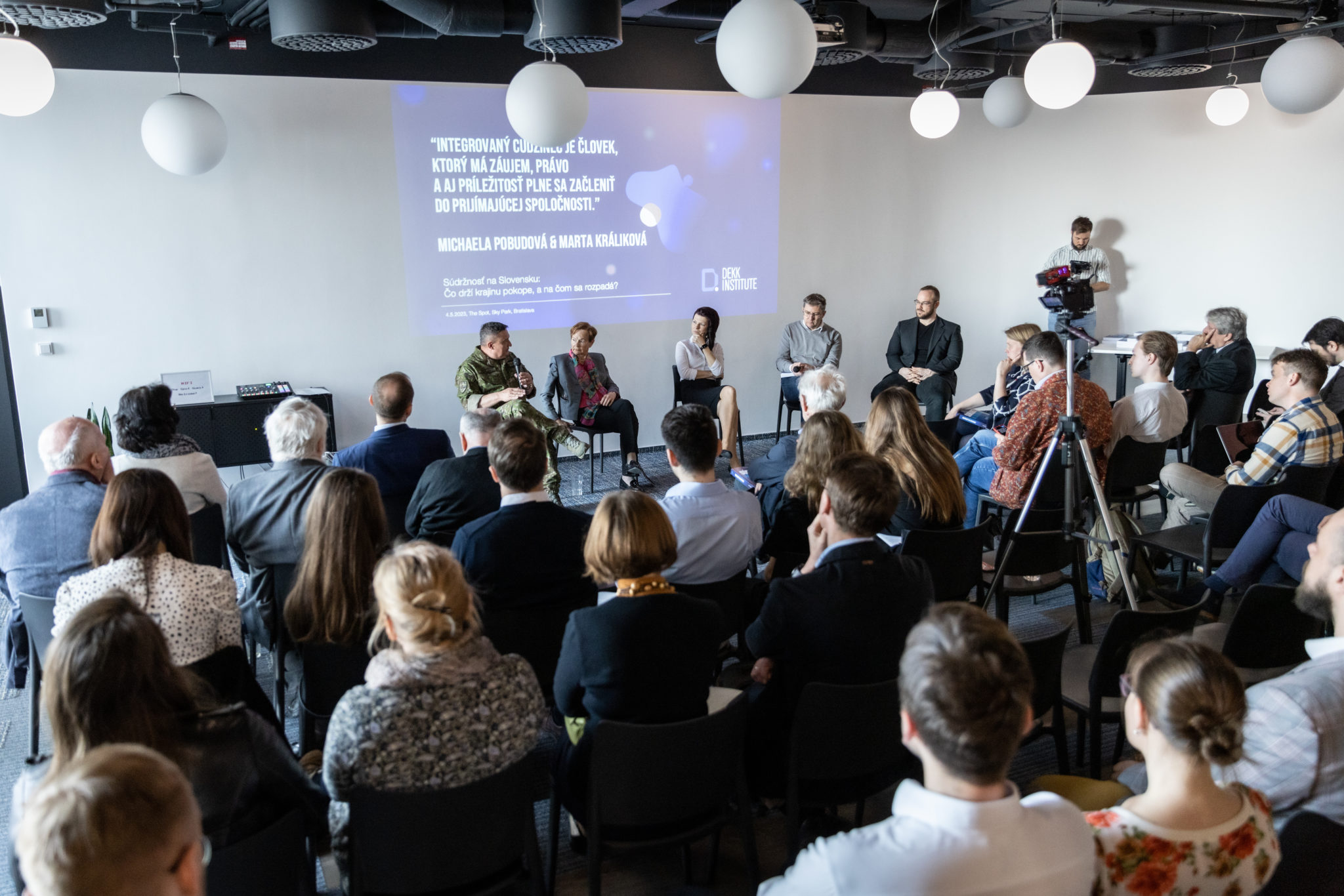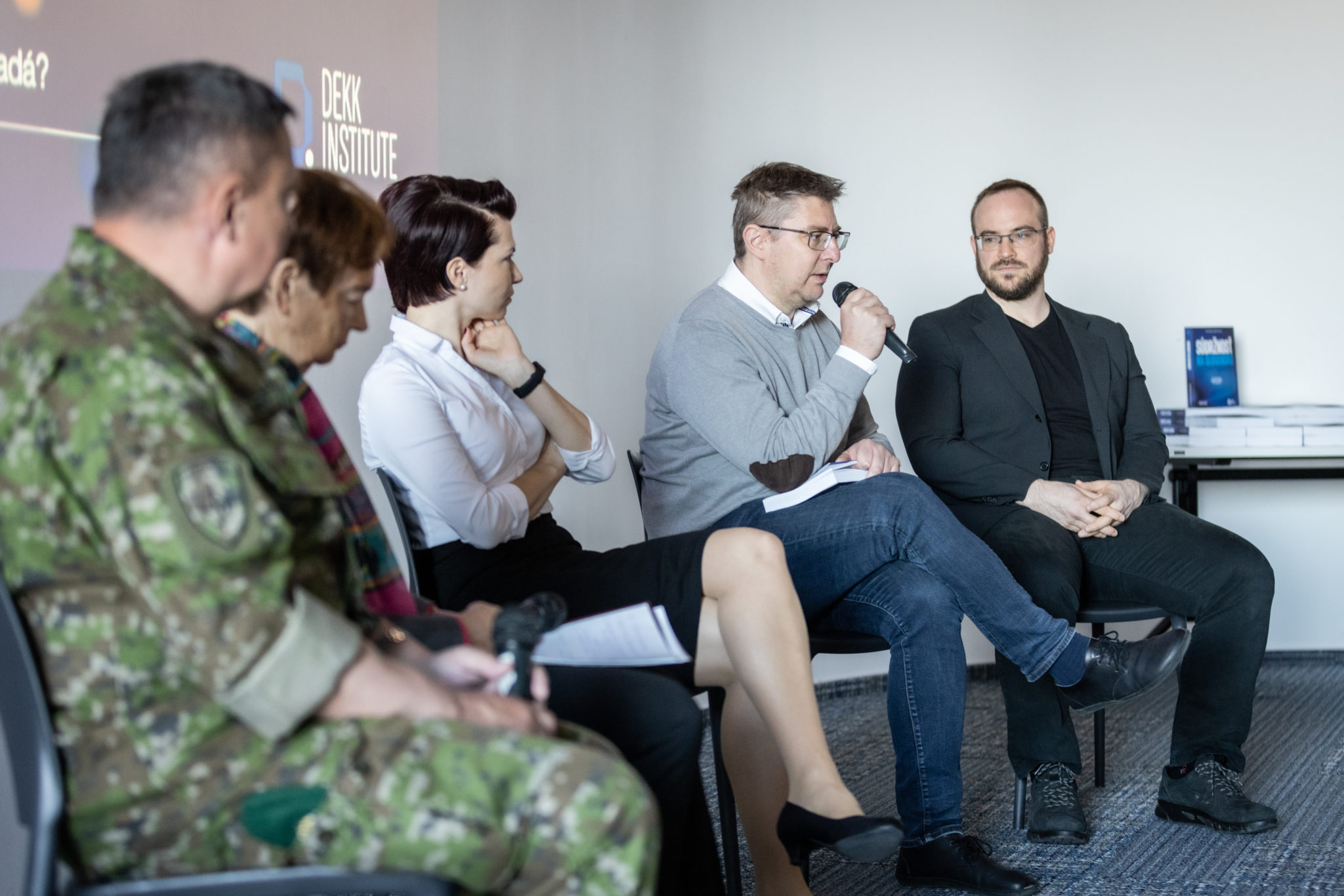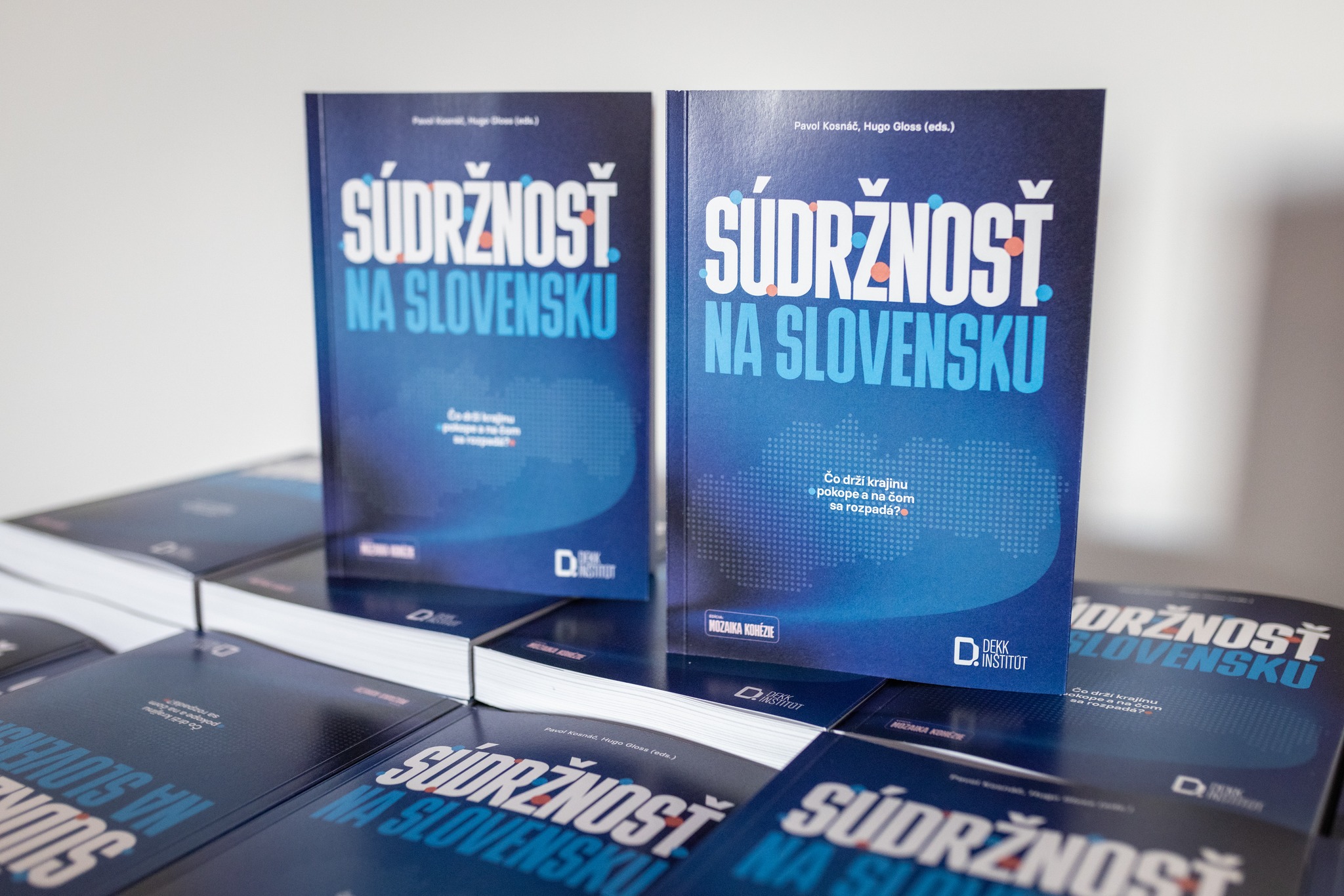Book.

Cohesion in Slovakia:
What holds the country together and what tears it apart?
Originally, we intended to create a study for a small circle of experts that would map the causes of (dis)trust in Slovak society. However, as we gradually delved into this topic, we found that it would be more of a mosaic of factors from several areas of life and history of Slovakia.
What was originally an academic work for a few experts has thus become a publication that has attracted the interest of various social actors - experts working for the state, academics, journalists and the wider public. It was a moment that surprised - but also delighted us. It showed that people care a great deal about the functioning of our country. The aim of the book “Cohesion in Slovakia: what holds the country together and what is falling apart?” is to open a debate in Slovakia regarding trust, patriotism and social cohesion in our country. The book aims to serve all those who perceive the topic of cohesion in our society as important: various government departments, policy-makers, academia, media and the wider civil society.
We have launched a crowdfunding campaign of the first book in the Mosaic of Cohesion series. What will you find inside?
A total of 16 contributions from 20 authors in 367 pages of engaging text.
The experts who contributed to the book include 13 researchers from Slovak universities, the Slovak Academy of Sciences, Charles University in Prague, the University of Cambridge in the UK and the University of Agder in Norway, and 7 so-called "experts by experience", i.e. experts who by the nature of their practical work - for example, integration of foreigners, designing the Estonian collective identity concept, decentralisation of the state or commanding the Slovak Armed Forces - have insight into issues related to social cohesion and trust.
This is how we brought the book to life:
On Thursday, May 4, we presented the book to the public. All available copies were snapped up in no time. The event was very enjoyable. It was a joy to see how different worlds and generations intermingled constructively on the spot and had lively discussions together. Caring about one's country has a uniting property it seems :-)

Contents of the book
Academic section:
Trends of (dis)trust in Slovakia
Pavol Kosnáč, DEKK Institute and Charles University
Hugo Gloss, DEKK Institute and Charles UniversitySocial cohesion in sociological and psychological perspective
Justin E. Lane, CulturePulse
LeRon Shults, University of AgderEmotions and social cohesion
Samuel Žilinčík, Masaryk University, winner of the prestigious British competition of the Royal United Services InstituteTrust as a fundamental pillar of social cohesion
Marianna Mrva, Institute of Sociology, Slovak Academy of Sciences
Roman Džambazovič, Faculty of Arts, Comenius UniversitySocial cohesion in Slovakia from a historian's perspective
Roman Holec, Institute of History, Slovak Academy of SciencesSocial cohesion and nationalism
Ladislav (László) Vörös, Institute of History, Slovak Academy of SciencesSocial cohesion in Slovakia during modernization and the role of associations
Elena Mannová, Institute of History of the Slovak Academy of SciencesReport on the state of cohesion in Slovakia
Marína Zavacká, Institute of History of the Slovak Academy of SciencesElites and social cohesion in Slovakia
Soňa Szomolányi, Faculty of Arts, Comenius UniversityCatholics and Social Cohesion in Slovakia: Historical (Self)Victimisation and Historical (Self)Reflection
Agáta Šústová Drelová, Institute of History, Slovak Academy of Sciences
Experts from the field:
Historical roots of Slovak Russophilia, its consequences and possible solutions
Daniel Šmihula, diplomat and political scientistThe road to social cohesion: the Estonian experience
Marianna Makarova, Strategic Communication Advisor, Estonian Government OfficeGovernance and social cohesion
Viktor Niznansky, Municipal Research and Advisory Centre, n.o.Integration of foreigners in Slovak
Michaela Pobudová, MAREENA, o. z.
Marta Králiková, MAREENA, o. z.A cross-section of the development of trust in the government in Slovakia between 1990 and 2023
Martin Slosiarik, FOCUS AgencyIs Slovakia vulnerable? The Army and Patriotism
gen. Daniel Zmeko, Chief of the General Staff of the Slovak Armed Forces
Thank you for your support!

© 2024 DEKK Inštitút | All rights reserved | CREA:THINK STUDIO